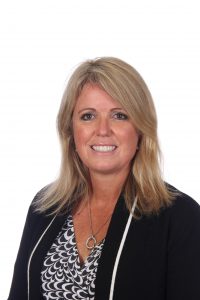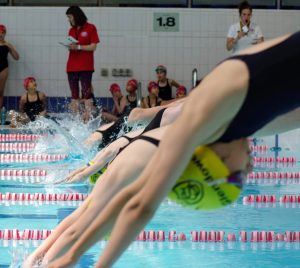
Mrs Kingsmill-Moore
Mrs Kingsmill Moore was appointed Headmistress of Glendower Prep in South Kensington in September 2019. She was previously the Deputy Head of Lambrook School, an independent prep in Berkshire.
I think it’s safe to say your first year at Glendower may not have gone exactly as you had envisioned when you accepted the post. How did the school manage the first lockdown?
Although we used online teaching and learning in the pre-Covid era, it was never our main style of communication. But as soon as we heard a lockdown might happen we started working on potential formats. Initially we thought we might maintain the exact timetable, but after running it for the week before Easter and then consulting with the parents and the teachers, we came to a compromise. We settled on a morning dedicated to lessons, whether live or taped, and a dip-in dip-out model in the afternoon. The afternoon flexibility kept girls whose parents were working busy, but allowed others the time to exercise with a sibling for instance. Some of our more extrovert teachers relished the challenge of the online lessons and the exposure, while for others it took time to settle, especially if they had young families at home. However, they all acquired many new technological skills and received lots of specific training and I was immensely proud of our teaching team.
What lessons do you draw from the experience?
We certainly don’t want to be an online school that gives you the option to dip in or dip out from home in the future, because we believe the girls need that component of human contact –with the teachers and each other–to learn best. But we know that in the case that a girl can’t come to school for an extended period of time, or if there is a snow day for example, we can easily flip to online platforms again.
In addition, for the girls from Y3, we are moving to a more virtual learning environment, which encapsulates both our online platform and the classroom teacher. We are not going to spend more time online, but we’re going to enhance what we are doing and the tools we use to complement learning.
What do you think are Glendower’s biggest strengths? What does it do particularly well or a little differently from other schools?
Many prospective parents are drawn to Glendower because of its reputation for academic excellence, but the really important difference is that we actually believe in –and are deeply committed to- the girls’ overall wellbeing and mental health. If we focused only on academic excellence we could easily become somewhere the girls are only viewed as vessels to be filled with knowledge, but we want to make sure they have opportunities in music, art, drama and sport to test themselves and develop softer skills like empathy and resilience. We dedicate time-tabled time to the softer skills. What parents need to understand is that EQ (emotional intelligence) is as important as IQ. We are not training little robots. We teach those soft skills through a multitude of activities for the girls to do well at 11+ of course, but more importantly in their life beyond.
Do you think prospective parents’ focus is shifting?
I’m seeing more and more parents who seek a balance. They want academics, but in a more nurturing environment. Post lockdown, after spending so much time together, we all appreciate our families and our communities a little more, there is definitely a focus on not wanting to send the girls somewhere harsh.
At the same time, I also want to dispel the idea that if you are focused on pastoral care then you are dumbing down the academics. We have a very symbiotic approach and we believe that one complements the other. If you can create a happier, more nurturing environment, the girls will perform better academically than if they are in an environment where they don’t feel supported.

Reception at Glendower
When one takes over a well-established and highly respected school like Glendower, there is a fine balance to tread between ensuring continued success and respecting the established way of doing things and bringing in a fresh perspective. Do you see your role more as ensuring continuity or as being an agent of change?
Glendower has an amazing reputation, built over many years, and so I didn’t want to come in and start making big changes. I wanted to sit and observe things from the inside for a while. But it was never my intention to just tick along. There are always things to fine tune, new teaching methods to explore. I also want to forge deeper links with our community. There are huge disparities in wealth and opportunities in our borough. We want to build that awareness in the girls and to see what we can do to build links with other schools and charities working with children in our area.
Do you think the 11+ Consortium has had a positive impact on the girls’ mental health?
Well, we are quite pleased honestly if there isn’t going to be a crazy week of exams for our girls this year. It’s just not good for their mental health. Obviously, this year Covid has forced some changes (with some schools adopting the ISEB pre-test instead of their own papers). What we, the prep schools heads, would really like is for this more cohesive approach to carry through in some form and to get the senior schools to really talk to each other to take into consideration the girls’ mental health once and for all.
What do you think is the biggest challenge in raising girls these days?
For parents, it’s the mental health. I have three children in their teens and I see the impact that social media has on them. There can be this perception that, “out there people have a perfect life that’s not like mine.” That’s hugely detrimental to their mental health.
I think there is some work to be done, however, both at home and at school, around resilience. My fear is that we have become so keen, as a society, to cushion everything in the girls’ lives that we don’t allow them in the simplest form, when they are 2, 3, 4 years old, to feel negative emotions. We immediately try to pacify them instead of allowing them to develop the ability to cope. It really worries me, because while it’s sustainable for a short length of time, very soon the girls get to an age where they don’t want their parents to sort things out for them, but are not equipped with the tools to sort themselves out either, and so they find other ways of coping that can be very worrying and damaging. I know why parents step in — we all want the best for our children–but we have to be brave enough to give them that space to struggle. And we need to accept that it’s ok to face repercussions sometimes. That’s learning too. I fear that we, as parents, are becoming almost mistrustful of other people’s ability to have the child’s wellbeing at heart. And that’s a big loss.

Swimming at Glendower
What do you think is the mission of a junior school when looking at the whole educational journey of a child?
I would like parents to walk away from the simplistic idea that the only value of a school like ours is to prepare them to access the next school. We are preparing them for life. We are giving them the confidence and the resilience and the breadth of interests and experiences. I don’t want to send girls forward who are one-trick ponies. They might be in the boardroom, on the stage, in the studio or on a podium in a few years. We don’t know and it doesn’t matter. They have to be able to communicate well and to show an interest in others. People warm up to others who have that empathy. That’s an important component of success.
Do you see sustained interest in boarding from Glendower parents?
Yes, there is. Last year we sent 8 girls boarding out of a cohort of 36. It certainly suits some girls to be in a boarding environment. We always talk to parents about the idea because some come from a background that means they have never considered it. But it’s also important to understand that boarding no longer means sending your children off and not seeing them for a whole term. It’s become much more flexible. Many parents want a school within an hour of their home so their child can come home at the weekend or they can catch a match. We’re lucky that we have many options within easy reach of London. For families where both parents work and have limited time for their child during the week, boarding is also worth a closer look because you get the best of both worlds: an efficient working week and quality time at the weekend.
Which type of girl does boarding suit best?
A girl who is invested in all the extracurricular opportunities as well as academia. She also needs to be independent of thought, able to organise herself and quite confident. If you send a very shy, nervous girl boarding, it could have a detrimental effect on them. Equally, it could be the making of them, so it is always worth considering!



